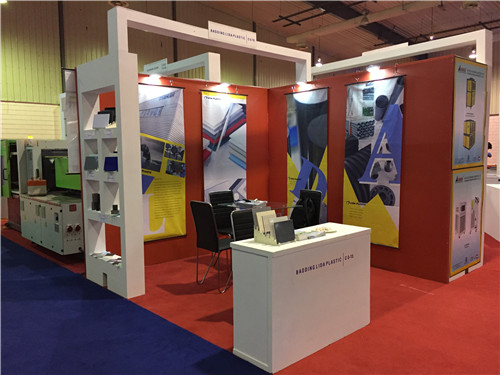Oct . 21, 2024 04:21 Back to list
HDPE Polyethylene Pipe Applications and Benefits for Efficient Water Management
The Benefits and Applications of HDPE Poly Pipe in Modern Infrastructure
High-Density Polyethylene (HDPE) pipes have gained widespread recognition and utilization across various industries, particularly in the construction, irrigation, and plumbing sectors. Renowned for their durability, flexibility, and resistance to corrosion, HDPE pipes represent a revolutionary advancement in piping technology. This article explores the characteristics, advantages, and applications of HDPE poly pipes, shedding light on their essential roles in modern infrastructure.
What is HDPE?
High-Density Polyethylene (HDPE) is a versatile thermoplastic made from petroleum. Its molecular structure is characterized by a high level of crystallinity, granting it superior tensile strength and impact resistance compared to other polyethylene varieties. This makes HDPE an excellent choice for a variety of applications, especially in environments that demand exceptional durability.
Advantages of HDPE Poly Pipes
1. Durability and Longevity One of the most significant advantages of HDPE pipes is their longevity. HDPE pipes are resistant to a wide range of chemicals, making them ideal for transporting water, chemicals, and other materials. They are also less likely to corrode or scale compared to traditional metal pipes, which can significantly extend their lifespan.
2. Flexibility and Lightweight HDPE pipes are exceptionally flexible, allowing them to withstand ground movement and environmental stressors without breaking. This flexibility not only simplifies installation but also reduces the potential for damage during earthquakes or settling. Furthermore, their lightweight nature reduces transportation costs and makes handling easier during installation.
3. Low Maintenance The smooth interior of HDPE pipes minimizes friction, which leads to improved flow rates and reduced energy consumption. Additionally, their resistance to corrosion and biological growth means they require less frequent maintenance compared to other piping materials.
4. Joint Integrity HDPE pipes are typically joined using heat fusion, which creates a seamless connection that maintains the integrity of the system. This method significantly reduces the risk of leaks, a common issue with traditional gasketed joints.
hdpe poly pipe

5. Environmentally Friendly HDPE is fully recyclable, making it an eco-friendly choice. Many companies actively recycle HDPE materials, reducing waste and the need for new raw materials. Moreover, the production process generates fewer greenhouse gas emissions compared to other piping materials.
Applications of HDPE Poly Pipes
1. Water Supply and Distribution HDPE pipes are widely used for municipal water supply systems due to their resilience and longevity. They are also popular in rural areas for supplying clean drinking water through underground piping systems, reducing the risk of contamination.
2. Irrigation Systems In agriculture, HDPE pipes play a crucial role in irrigation systems. Their flexibility allows for efficient water delivery across various terrains, ensuring that crops receive the necessary hydration while minimizing water waste.
3. Sewer and Wastewater Management HDPE pipes are increasingly used in sewer systems and wastewater treatment facilities. Their resistance to hydrogen sulfide and other corrosive elements found in sewage makes them an ideal choice for such applications, ensuring longevity and reliability.
4. Industrial Applications Many industries utilize HDPE pipes for the transportation of chemicals and raw materials. Their ability to resist a wide range of chemicals allows for safer and more efficient operations in manufacturing plants.
5. Telecommunication and Electrical Conduits HDPE pipes are also used as conduits for electrical and telecommunication wires. Their non-conductive nature and protection against environmental factors make them suitable for underground installation, safeguarding vital infrastructure.
Conclusion
In conclusion, HDPE poly pipes represent a significant advancement in piping technology with numerous benefits and applications across various sectors. Their durability, flexibility, and resistance to corrosion make them a preferred choice for water supply, irrigation, sewer management, and industrial applications. As industries continue to seek sustainable and efficient solutions, the importance of HDPE pipes in modern infrastructure will undoubtedly grow, paving the way for a more resilient and environmentally-friendly future.
-
PVC Transparent Sheet Roll - Durable & Flexible PVC Plastic Sheet Roll for Industrial & Home Use
NewsJun.24,2025
-
High-Quality PVC PPR Pipes and Fittings Durable ERA PPR Solutions
NewsJun.10,2025
-
High-Quality Large HDPE Sheets & Large Diameter PVC Pipe Durable Large PVC Pipe Supplier
NewsJun.10,2025
-
High Density Polyethylene Cutting Board - Durable & Food Safe
NewsJun.09,2025
-
3 Inch PVC Pipe for Durable Irrigation Affordable & Reliable
NewsJun.09,2025
-
Premium PPR Plastic Water Pipe Fittings - Durable & Leak-Free
NewsJun.09,2025

